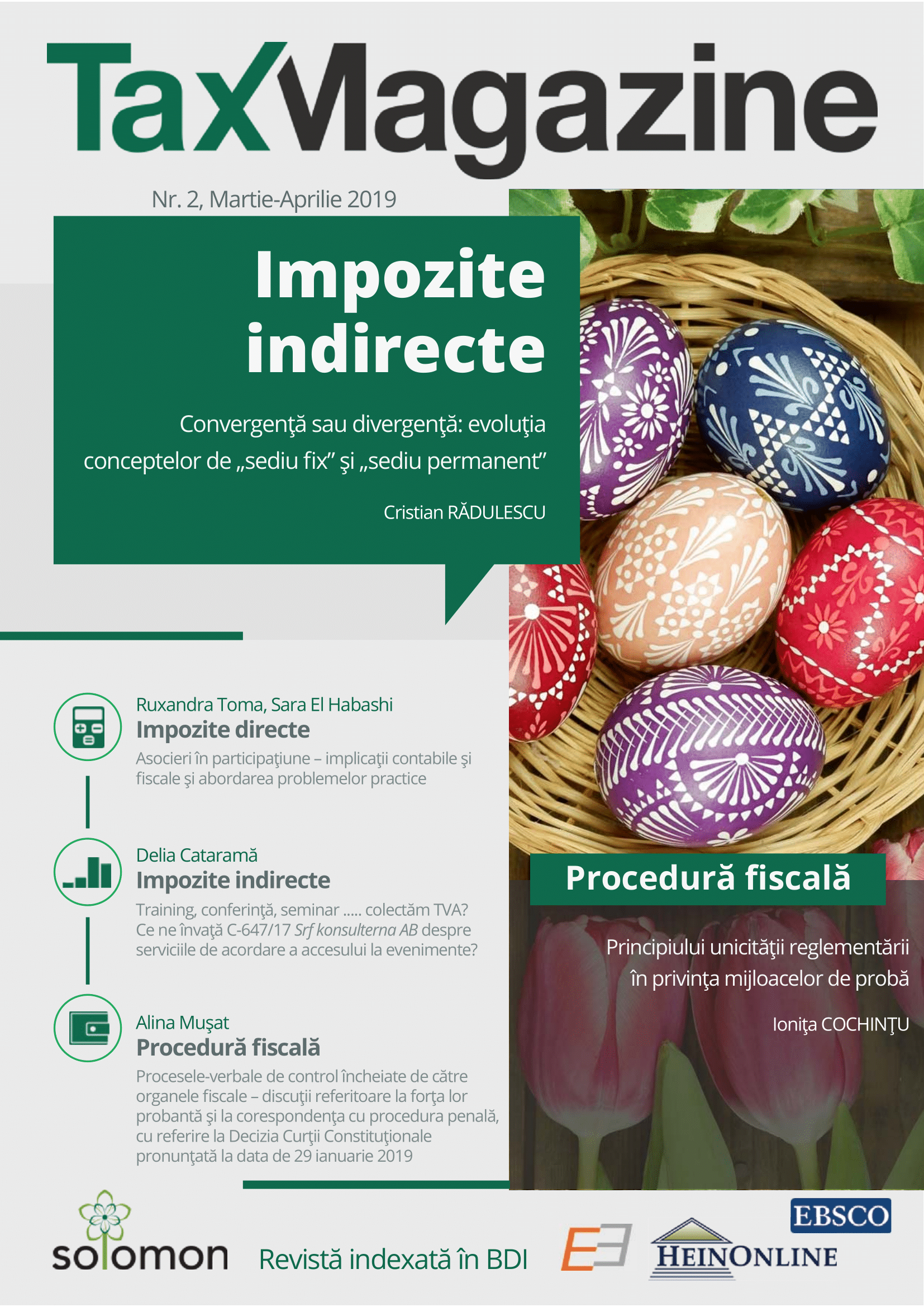Principiului unicității reglementării în privința mijloacelor de probă
The principle of the uniqueness of regulation regarding evidences
Author(s): Ioniță CochințuSubject(s): Law on Economics, Commercial Law
Published by: Editura Solomon
Keywords: uniqueness of regulation; evidences; National Agency for Fiscal Administration; tax controls;
Summary/Abstract: The fiscal bodies have general competence regarding the administration of tax receivables, the exercise of control and issuance of norms for the application of legal provisions in fiscal matters, being represented by the National Agency for Fiscal Administration and its subordinated units, as well as the specialized departments of the local public administration authorities. Given the competences of this specialized body, the legislator established the manners of its collaboration with the criminal prosecution bodies. Thus, on the one hand, the fiscal bodies have been obliged to notify the criminal prosecution bodies if they discover, in their activity, indications that a crime was committed, and, on the other hand, symmetrically, was regulated the possibility of the criminal prosecution bodies to obtain the help of the fiscal bodies, at the initiative of the former. In this context, given the fact that the results of the tax controls/verifications are recorded in minutes which constitute evidence, the question arises, naturally, in what quality does the designated personnel within the National Agency for Fiscal Administration perform tax verifications/controls, respectively, makes a finding under the provisions of the Criminal Procedure Code or preserves evidence as party in a specific process and whether this activity is circumscribed to constitutional provisions. These are the issues that will be addressed in the present paper and, in order to answer this question, we will analyze the legal framework by which this cooperation of the criminal prosecution bodies with the National Agency for Fiscal Administration was established, the minutes of the latter being means of evidence, which must be in line with the new Code of Criminal Procedure concerning the administration of evidence, implicitly respecting the principle of uniqueness in the matter, as well as the case‑law of the constitutional court.
Journal: Tax Magazine
- Issue Year: 2019
- Issue No: 2
- Page Range: 127-135
- Page Count: 9
- Language: Romanian
- Content File-PDF

